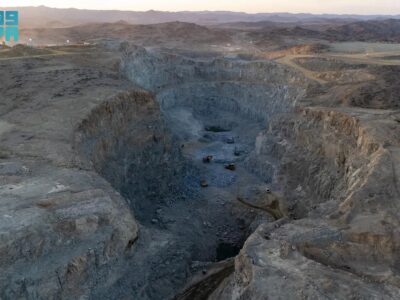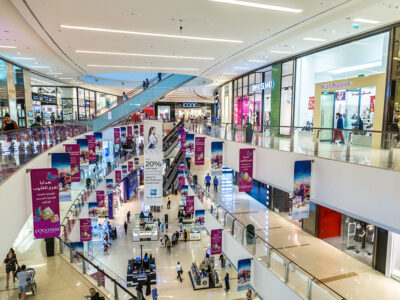As the e-commerce battle in the Middle East heats up, and mergers and acquisitions become an integral part of the landscape, Dubai-based online retailer awok.com is slowly, but carefully planning a regional rollout.
The e-commerce in the MENA is becoming competitive and aggressive with US-based internet retailer Amazon.com buying Souq.com; Jadopado.com being acquired by a technology fund led by billionaire Mohamed Alabbar; and $1bn noon.com set to launch.
The competition is not unsettling for Ulugbek Yuldashev, the founder and chief executive of awok.com. With more than 3 million registered users — 75 percent of whom are repeat customers — and more than a million products delivered every month in the UAE, he is confident of regional success.
The company released its beta version for Saudi Arabia in April 2017.
“After having launched the beta version, we noticed a huge growth in customer numbers, which is increasing three to four folds on a week-on-week basis,” he tells Arabian Business in an exclusive interview.
A full-scale operation is most likely to start before the end of the year, he says.
As for the other four GCC nations [Bahrain, Oman, Kuwait and Qatar], the company will begin operation with a cross-border delivery service.
“We will be operating with a cross-border delivery service in the first year, and then see if a local presence is required or not,” says the 33-year-old Kyrgyzstan entrepreneur.

Awok is taking steps to encourage customers to move towards card transactions, says Yuldashev.
Yuldashev started his own retail company in 2004, at the age of 19. He moved to Dubai in 2006 with the aim to source products for his business, but decided to stay realising the growth opportunities for entrepreneurs. He set up his first wholesale company, Gulf Alabel Technologies, in 2008. In fact, the success of this first Dubai venture drove him to set up another company — Alifco LLC — which then led him into the world of e-commerce and awok.com.
“My passion of being in retail business moved to online while I was in Dubai. It offers infinite opportunities as the world is going digital,” he says.
A recent report by Hootsuite and We Are Social reveals that of the 246 million people living in the Middle East, 60 percent use the internet, up 15 percent from a year ago, while 34 percent are active on social media, representing a 47 percent year-on-year rise.
Yuldashev says there were challenges when he started his online venture, particularly in the logistics area, with “last mile” connectivity being the biggest concern.
“The last mile companies that were asking for extra money and working one-to-one with customers was a big problem. So to overcome it, we started to build our own logistics network. We took two cars and started delivering goods in Dubai.”
At present, the company owns 150 delivery vehicles and now plans to offer same day delivery service.
“Customers are becoming more demanding. When we started four years back, customers were expecting delivery to be between seven and 10 days, then it came to four days and later to 24 hours. They are now demanding delivery in two hours.”
So how will it be done?
“It is all about technology,” Yuldashev says. “We use a lot of technologies and big data analysis to comprehend what our customers will be buying tomorrow so we can make sure to send our vehicles with goods even before the customer orders.
“The technology that we are working on will be the key to deliver goods within the shortest time. We are able to predict more than 70 percent items that will be sold on a particular day, 24 hours in advance.”
As competition brews amongst existing retailers, loyalty is an important factor for success.
To keep customers loyal, awok.com keeps offering “killer deals”, which now include a $9,537 (AED35,000) Kia Picanto 2017 car for just 27 US cents (AED 1), a $817 (AED2,999) 128GB Apple iPhone 7 for $244 (AED897) and many more.
“We are adding a lot of value to our customers in terms of pricing,” Yuldashev says. “And we have one of the most competitive pricing.”
He reveals that the second a bargain deal is activated there are about 10,000 to 20,000 people waiting to buy that product.
“Customers have sent us images where they are sitting with their families and friends on several laptops or smart phones. So you see why some of our products sell out in a couple of seconds.”
Asked if he plans to sell his online venture, Yuldashev bluntly rules out that possibility — at least in the near future.
“Dubai is the hub for the Middle East and North Africa, and being here gives companies an advantage of having access to the Mena region. You have the best regulation and talent pool here and so all companies hunt for Dubai-based companies.”
He and his two friends started awok.com with an initial capital of $30,000 — the only investment they have made to date.
He says the company has been making a profit since its inception, and the cash flow will fund its expansion plans, ruling out the need for any external funding.
“We are a company that is making profit and not burning cash. We have the cash flow and that is helping us to expand.”
The CEO credits an increase in smart phone usage as one of the reasons for the growth of e-commerce.
The previously mentioned Hootsuite and We Are Social report found that the amount of web traffic on mobile devices universally increased to 50.3 percent in 2016, a significant rise from 2013 (35 percent) and from the first figure recorded in 2009 of 0.7 percent.
“Today, nearly 80 percent of our transactions take place through mobile phones,” he says. “If you are in the metro or a car, you can simply open an app and purchase anything instantly. This flexibility has given boost to e-commerce.”








